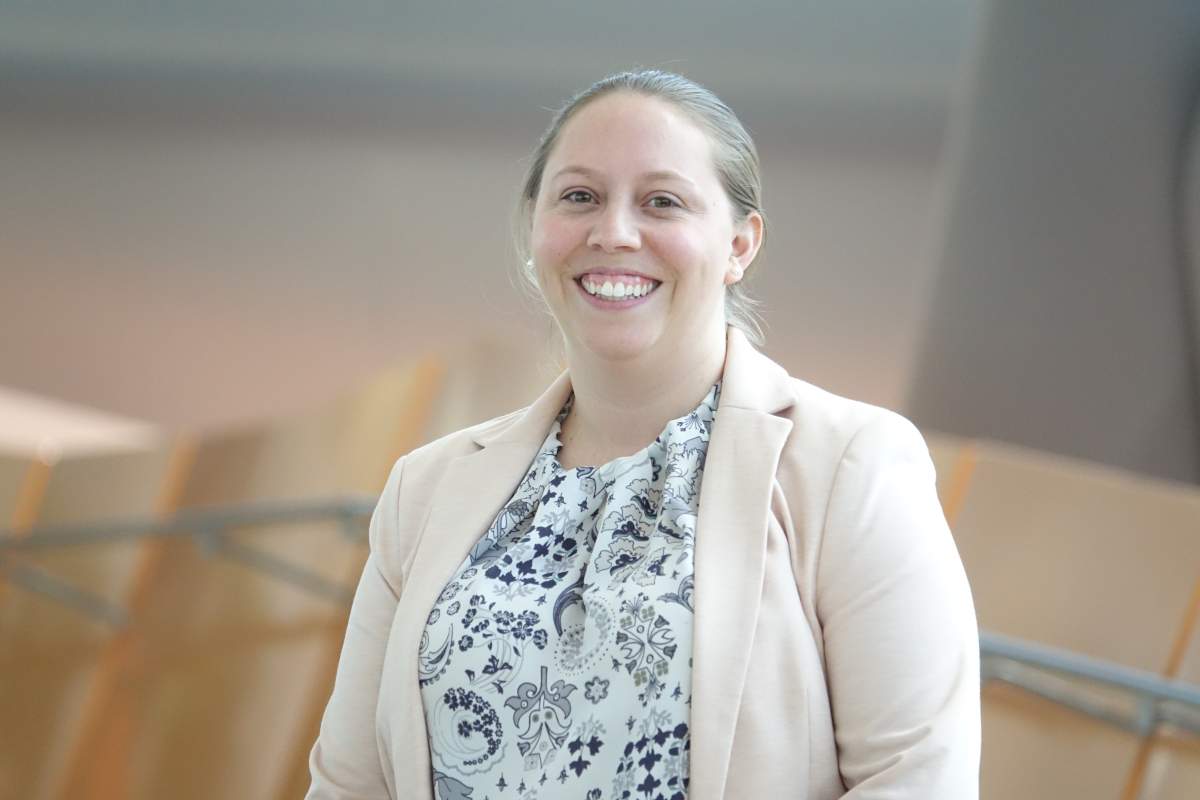The new president of Doctors Nova Scotia says there are many problems facing the province’s health-care system which need to be addressed from multiple angles.

Dr. Leisha Hawker, a family doctor in Halifax, was sworn into the role during Doctors Nova Scotia’s annual conference on Saturday.
She said the key issues she wants to tackle during her mandate include recruitment, retention, and primary care.
“Primary care is the foundation of the health-care system, and right now that foundation’s not very strong,” Hawker told Global News.
The province’s health-care system is still very much feeling the pressure of COVID-19.
While most pandemic restrictions have been lifted and daily case reporting has ended, Hawker said many doctors “don’t feel like we are coming out of COVID.”
“When we see others at restaurants, or on patios, or getting back out there, we’re still wearing all the PPE, the masks and everything, and we’re still facing huge backlogs, especially with surgeries, access to specialists,” she said.
“Those in the hospital are still really feeling it, those of us in primary care are still having a really hard time getting access to tests and access to specialists and surgeries for our patients.”
She said burnout continues to be a “significant issue” amongst physicians, and some are even retiring early or cutting back on their practices.

Get weekly health news
But the pandemic also highlighted how virtual care can be used to make access to primary care faster and more efficient.
Hawker, who works at the North End Community Health Centre, as well as with addictions and newcomer clinics, said virtual care saves time for both doctors and patients.
“A lot of my patients, especially at the addictions clinic, they have to drive up to an hour to come see me, sometimes even for just a 10-minute visit,” she said.
“So they’re missing half a day of work, some of them are lugging their kids with them, and virtual care has just increased accessibility to physicians to a lot of patients.”
She said one of her colleagues in addiction medicine does youth psychiatry and has a lot of patients in correctional facilities.
“So he used to spend so much time driving across the province, going to courts and going to different facilities to see his patients,” she said. “Now he can see many more patients in a day because he’s not spending that time travelling.”
Hawker believes virtual care is here to stay, but due to it being basically “started overnight” in response to the COVID-19 pandemic “without much planning,” now is the time to further solidify its role in the health-care system.
“So the key now is to really start planning: how does it work best? What scenarios … are best suited for virtual care, versus what problems really should be dealt with in person?”
‘It’s not just about seeing a doctor’
But improving the health-care system isn’t just about doctors and appointments.
She said the North End Community Health Centre, where she works, is a “really good model” for collaborative health centres – centres that focus on the specific needs of the community.
“We have community engagement asking our patients and those in the neighbourhood what this community needs, and we start working on developing those programs,” she said.
“So if we had a community health centre in Digby, or Yarmouth, or somewhere else, they might not need the same program that our community in the north end of Halifax needs, but that’s the key to a collaborative community health centre – it can be unique to that individual community.”

The centre in north-end Halifax runs a free dental clinic, a walk-in social work clinic, and has a dietician who runs a food box program and teaches budget-friendly cooking classes.
“So there’s lots of different things that our clinic does outside the usual scope of a family doctor’s office,” said Hawker.
With the rising cost of living, she said it’s important to look at health care not just from a clinical perspective – but also through the lens of social determinants of health.
“Health care, it’s not just about seeing a doctor and getting a prescription,” she said.
“What you need to be healthy, you need secure housing, you need to live in a safe community, you need to be able to have walkability in your community, you need to be able to go somewhere and feel safe to get exercise, you need to have access to reasonably priced foods.”









Comments
Want to discuss? Please read our Commenting Policy first.